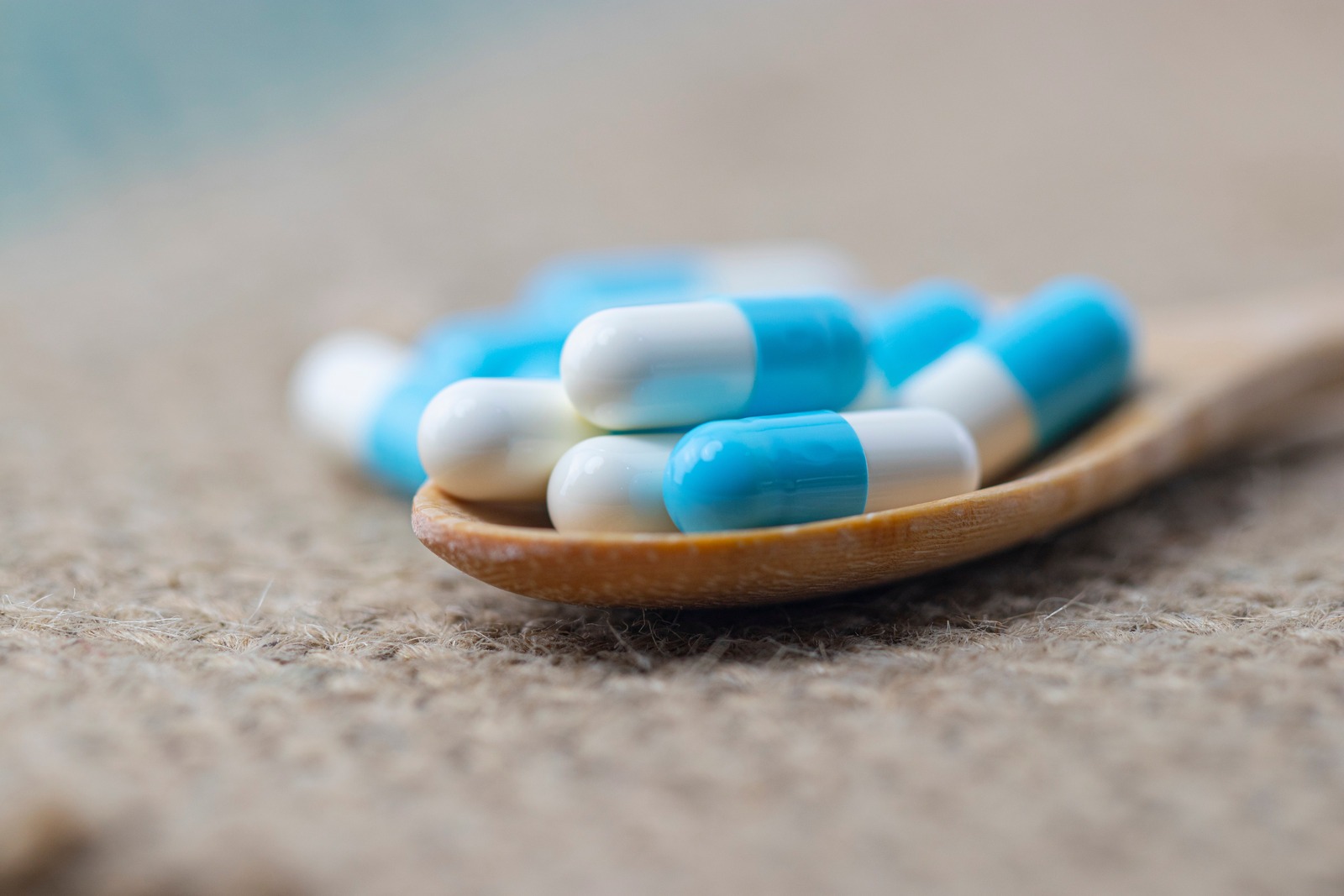Vyvanse vs. Adderall: Which is Best For My Circumstances?

- Vyvanse and Adderall are both effective in treating ADHD symptoms, but their effectiveness may vary depending on individual responses and needs.
- Medications like Vyvanse and Adderall are frequently prescribed to alleviate ADHD symptoms and improve daily functioning.
- Vyvanse (lisdexamfetamine) is the brand name of a prodrug containing the active ingredient dextroamphetamine.
- Adderall is a combination medication containing amphetamine salts, including dextroamphetamine and amphetamine.
- Dosages for Vyvanse and Adderall are determined based on age, weight, severity of symptoms, and individual response to the medication.
- Vyvanse and Adderall differ in their potency and duration of effects.
Navigating ADHD treatment involves considering various factors, which may include the common prescription medications Vyvanse and Adderall. ADHD, a neurodevelopmental disorder characterized by inattention, hyperactivity, and impulsivity, often requires pharmacological intervention for symptom management. [1]
Individuals diagnosed with ADHD may experience difficulties in school, mental health, work, and social settings, underscoring the importance of effective treatment strategies. While non-pharmacological interventions like behavioral therapy play a crucial role, medications like Vyvanse and Adderall are frequently prescribed to alleviate ADHD symptoms and improve daily functioning.
Understanding Vyvanse and Adderall
Vyvanse
- Composition and Mechanism of Action: Vyvanse (lisdexamfetamine) is the brand name of a prodrug containing the active ingredient dextroamphetamine. It is metabolized in the body into its active form. Once ingested, enzymes in the body convert Vyvanse into dextroamphetamine, which acts as a central nervous system stimulant (CNS).[2] Dextroamphetamine increases the levels of certain neurotransmitters, such as dopamine and norepinephrine, in the brain. This increased neurotransmitter activity helps improve focus, attention, and impulse control, effectively managing ADHD symptoms.
- Food and Drug Administration (FDA) Approval and Recommended Uses: The FDA approved Vyvanse in 2007 for treating attention-deficit/hyperactivity disorder (ADHD) in children aged 6 to 17 and adults. It is also FDA-approved for the treatment of moderate to severe binge eating disorder (BED) in adults. Vyvanse is available in various dosage strengths and formulations, including capsules and chewable tablets, and is typically taken once daily in the morning.
Adderall
- Composition and Mechanism of Action: Adderall is a combination medication containing amphetamine salts, including dextroamphetamine and amphetamine.[3] These amphetamine salts work by increasing the levels of neurotransmitters dopamine and norepinephrine in the brain, which helps improve focus, attention, and impulse control. Adderall is available in both immediate-release and extended-release formulations, providing varying durations of action.
- Food and Drug Administration (FDA) Approval and Recommended Uses: Adderall has been FDA-approved for the treatment of ADHD and narcolepsy. It is indicated for use in children aged 3 years and older and adults. Adderall may be prescribed in various dosage forms and strengths, depending on individual needs and treatment goals. Like Vyvanse, Adderall should be taken as directed by a healthcare provider, and dosage adjustments may be necessary based on individual response and tolerance.
Key Differences Between Vyvanse and Adderall
Vyvanse and Adderall are both effective in treating ADHD symptoms, but their effectiveness may vary depending on individual responses and needs. Vyvanse is metabolized into its active form, providing a smoother onset and longer action duration than Adderall. Some individuals may find Vyvanse more effective in maintaining symptom control throughout the day, while others may respond better to Adderall.
Vyvanse Dosage vs. Adderall Dosage
Dosages for Vyvanse and Adderall are determined based on age, weight, severity of symptoms, and individual response to the medication. Healthcare providers typically start with a low dose and may gradually increase it until the optimal dose is reached, balancing symptom control with minimizing side effects.
Several factors may influence dosage adjustments for Vyvanse and Adderall, including tolerance development, changes in weight or medical condition, and the presence of other medications or substances that may interact with the stimulant medication. Healthcare providers monitor patients closely and may adjust dosages as needed to ensure optimal treatment outcomes.
Is Vyvanse Stronger than Adderall?
Vyvanse and Adderall differ in their potency and duration of effects.[4] Vyvanse is often considered to have a smoother and more gradual onset of action, with effects lasting up to 12 hours. Adderall, on the other hand, may have a quicker onset of action but a shorter duration of effects, typically lasting around 4 to 6 hours for immediate-release formulations and up to 12 hours for extended-release formulations.
The potency and duration of effects of Vyvanse and Adderall may impact treatment outcomes differently for each individual. Some individuals may prefer the longer-lasting effects of Vyvanse for sustained symptom control throughout the day, while others may find the quicker onset of Adderall more beneficial for managing specific tasks or activities.
Is Vyvanse Better Than Adderall?
When comparing Vyvanse and Adderall, determining which medication is “better” depends on various factors, including individual responses and preferences, as well as side effects and long-term effects.
Individual responses to Vyvanse and Adderall can vary significantly.[5] Some individuals may find that one medication provides better symptom control and fewer side effects compared to the other. Preferences regarding the onset of action, duration of effects, and dosing regimen may also influence the choice between Vyvanse and Adderall.
Individuals need to work closely with their healthcare providers to assess their response to each medication and determine which aligns best with their needs and preferences. Both Vyvanse and Adderall can cause side effects, including insomnia, decreased appetite, dry mouth, and increased heart rate.
Long-term use of stimulant medications like Vyvanse and Adderall may also raise concerns about potential cardiovascular and psychiatric effects. When prescribing these medications, healthcare providers carefully weigh the benefits of symptom control against the risks of side effects and long-term effects and misuse and addiction concerns. Monitoring for adverse effects and adjusting treatment as needed is essential to minimize risks and optimize treatment outcomes.
What is the Difference Between Adderall and Vyvanse in Practical Terms?
Considerations of lifestyle and daily routine also play a significant role in medication choice. Vyvanse’s once-daily dosing may be more convenient for individuals with busy schedules than Adderall’s need for multiple doses throughout the day.
Preferences regarding the timing of medication effects, such as preferring Vyvanse’s smoother onset and longer duration of action, also influence the decision. Additionally, lifestyle factors such as diet, sleep patterns, and stress management can impact medication effectiveness, highlighting the importance of personalized treatment approaches.
Additionally, there are some popular misconceptions surrounding Adderall and Vyvanse. One common myth is that Vyvanse is merely a newer version of Adderall, which isn’t accurate. Another misconception is that Vyvanse is inherently less addictive than Adderall, but both carry similar risks of dependency and misuse and are controlled substances.[6] Clarifying these misconceptions is crucial for understanding the practical differences between the two medications.
Making the Best Choice For You
Several factors must be considered when weighing the options between Vyvanse and Adderall for ADHD treatment. Ultimately, deciding which medication is best for you should be made in consultation with a healthcare professional who can provide personalized guidance based on your needs.
Advocate for your health and well-being by actively participating in discussions with your healthcare provider, asking questions, and expressing any concerns or preferences you may have. Together, you and your healthcare team can collaborate to find the best medication and treatment approach to help manage your ADHD symptoms effectively.
Frequently Asked Questions
Are you or a loved one struggling with Adderall® addiction?

